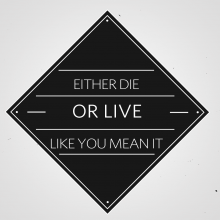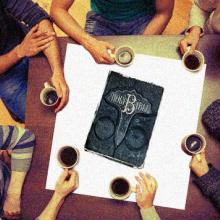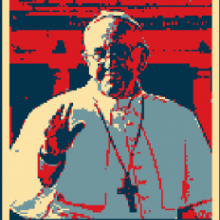Social Justice
Dear Church,
I received some distressing news today. Oh, I know you thought you’d kept it secret, but I answered the phone when the doctor’s office called to change your chemo appointment.
Chemo? Seriously? What, you thought I wouldn’t find out eventually? I know I seem preoccupied sometimes, but I’m not an idiot. I can see the signs.
I knew something was up when I saw you shrinking, little by little over time. Maybe other people couldn’t tell, but I suspected something bad was going on. You can paste on a smile, and listen to your happy music, and buy new stuff. But anyone who really knows you, realizes your body has been slowly betraying you.
Dying happens. I get that. What really makes me mad, though, is that you didn’t trust me enough to tell me. Maybe you didn’t know for awhile. I guess that’s possible. But the doctor had to have told you, right? I mean, at some point you decided to do something about it — if only to keep it a secret. And if you didn’t know, then you’re not who I thought you were.
Editor's Note: The following story originally appeared HERE in The Australian Financial Review.
Jarrod McKenna is in trouble. It's not that the dreadlocked Christian activist is at risk of being arrested, as he has been at several anti-war and anti-coal protests. Rather, he has let five-year-old Congolese refugee Zephanta Baganizi eat the leftovers of our very late lunch, shortly before dinner time.
"Have you asked your mum if it's OK?" McKenna asks "Zopho," who is gazing at several pieces of bolani, a vegan flat-bread meal from Afghanistan. Transfixed by the food, Zopho doesn't respond.
"Just a small piece, then."
Zopho grabs the biggest piece. He runs off to his family's apartment, mouth overflowing with fried bread and vegetable filling.
"I'm in trouble," McKenna says.
The interaction between Australian, Congolese and Afghan food, people and culture is not uncommon at a large block at the end of Dudley Street in the outer Perth suburb of Midland.
It is the location of First Home Project; a former methamphetamine lab transformed into three apartments that provide medium-term accommodation at below-market rates for refugees transitioning into their new Australian lives.
Yesterday morning, an op-ed piece went live on CNN by a young evangelical author named Daniel Darling, titled " Millennials and the false ‘gospel of nice.’ Darling’s piece is clearly written in response to many recent articles — like Rachel Held Evans’ recent piece "How evangelicals won a culture war and lost a generation " — which argue that many of the leaders of evangelical Christianity have abandoned the core convictions and teachings of Jesus Christ and instead have leveraged their faith as a weapon to be used against anyone who disagrees with their political and moral principles that they claim are rooted in Scripture.
All of this is very fresh in our minds as news broke yesterday that Christian relief organization World Vision lost more than 10,000 child sponsorships from people who disagreed with the organization’s policy change on hiring people in legal same-sex marriages. To many who watched this controversy unfold, this is an utter travesty. It seems simply unfathomable that anyone who claims to follow Christ could justify removing support from the impoverished children that they know by name because they disagreed with the organization’s hiring policy.
In his op-ed piece, Darling argues that the cry of many progressive and millennial evangelicals is:
"If only orthodox evangelical leaders would give up their antiquated beliefs, get more in step with the real Jesus, the church and the world would be better off."
He then continues by saying that:
"embedded in this narrative are two presuppositions: Young evangelicals are fleeing the church at a rapid pace [and] the real message of Jesus looks nothing like orthodox Christianity."
When I read these comments in Darling’s piece, I was utterly fascinated. Because as a millennial evangelical, and one who is participating in these conversations on a national and international level, I have never heard a single person call for "evangelical leaders to give up their antiquated beliefs." I have never heard anyone say "the real message of Jesus looks nothing like orthodox Christianity." When I read Darling’s piece, it became crystal clear to me what the key problem is that is causing so much friction between the "old guard" in evangelicalism and us millennials:
The old guard has confused orthodoxy with their political and moral interpretations of Scripture.
When President Obama and Pope Francis sit down at the Vatican on Thursday, the meeting may well offer a vision of what could have been for Democrats and the Catholic Church over the last six years: a leader of the state and a leader of the church working on the many issues where they agree while working through the issues where they don’t.
Of course, that’s not exactly how it’s gone for Obama and the U.S. hierarchy, even though Obama and the church both stress economic justice and the priority of the common good, universal health care, robust government support for the needy and comprehensive immigration reform.
The potential for a robust alliance fizzled almost from the start of Obama’s candidacy in 2007, and a relationship that began badly went downhill when he was elected.
WHEN I MOVED out of my Sojourners magazine office in 1988, I took with me two signed review copies of books. One was Roll the Union On: A Pictorial History of the Southern Tenant Farmers’ Union. It was inscribed to me personally by H.L. Mitchell, a founder of the STFU, so I felt entitled to keep it.
The other book bore no inscription, just a simple black ink signature above the Simon & Schuster logo. It was called Carry It On! A History in Song and Picture of America’s Working Men and Women, and the co-author who signed it was Pete Seeger. I’m looking at that signature now, as I write this on the day Seeger died.
I told myself that I kept that book because I thought it might come in handy. After all, it had 11 translations of “L’Internationale” and all the words to “Solidarity Forever.” But really I kept it for the signature. I liked the idea of having something that I knew had come from the hand of someone who had ridden the rails with Woody Guthrie. Seeger was our living connection to the culture of the 1930s when, for a moment, radical dreams about a country owned and operated by its ordinary citizens seemed almost ready for prime time.
Of course, that moment passed, and those dreams were shattered by the Red Scare and the Cold War that followed. But Seeger came out on the other side with his integrity and ideals intact. Despite being honored by the last two Democratic presidents, he never renounced his radical vision of what America could be. Seeger left the Communist Party in the early 1950s and frankly acknowledged that he should have done so sooner, but he never stopped calling himself a “small c” communist. In 1994, he told The Washington Post, “Our ancestors were all socialists: You killed a deer and maybe you got the best cut, but you wouldn’t let it rot, you shared it.” Still, he was a pragmatic radical, who added that socialists should recognize that “every society has a post office and none of them is efficient. No post office anywhere invented Federal Express.”
WHEN I MOVED out of my Sojourners magazine office in 1988, I took with me two signed review copies of books. One was Roll the Union On: A Pictorial History of the Southern Tenant Farmers’ Union. It was inscribed to me personally by H.L. Mitchell, a founder of the STFU, so I felt entitled to keep it.
The other book bore no inscription, just a simple black ink signature above the Simon & Schuster logo. It was called Carry It On! A History in Song and Picture of America’s Working Men and Women, and the co-author who signed it was Pete Seeger. I’m looking at that signature now, as I write this on the day Seeger died.
I told myself that I kept that book because I thought it might come in handy. After all, it had 11 translations of “L’Internationale” and all the words to “Solidarity Forever.” But really I kept it for the signature. I liked the idea of having something that I knew had come from the hand of someone who had ridden the rails with Woody Guthrie. Seeger was our living connection to the culture of the 1930s when, for a moment, radical dreams about a country owned and operated by its ordinary citizens seemed almost ready for prime time.
Of course, that moment passed, and those dreams were shattered by the Red Scare and the Cold War that followed. But Seeger came out on the other side with his integrity and ideals intact. Despite being honored by the last two Democratic presidents, he never renounced his radical vision of what America could be. Seeger left the Communist Party in the early 1950s and frankly acknowledged that he should have done so sooner, but he never stopped calling himself a “small c” communist. In 1994, he told The Washington Post, “Our ancestors were all socialists: You killed a deer and maybe you got the best cut, but you wouldn’t let it rot, you shared it.” Still, he was a pragmatic radical, who added that socialists should recognize that “every society has a post office and none of them is efficient. No post office anywhere invented Federal Express.”
IT WAS AN average afternoon in the college town of Northampton, Mass. I was sitting at a local coffee shop sipping a latte when I overheard the conversation between two students comparing laptop decals.
“I’m really into the whole child soldier thing. This sticker is about that,” explained one young woman. The other pointed to an emblem on her laptop, remarking, “I’m more interested in the issue of sex trafficking, but I guess everyone is.”
“Yeah,” the other girl responded, “It’s kind of the sexy social justice issue.”
An intense interest in social justice has been a hallmark of the Millennial generation thus far. Within the church, there has been a clear departure from the traditional emphasis on evangelism alone to a broadening conversation about the necessity of addressing physical needs and human rights. Millennials have made great strides in engaging some of the world’s most pressing issues, but is the popularity of social justice a completely good phenomenon?
The Good
As a result of globalization, my generation is more aware than ever about the plight of those Jesus refers to as our “neighbors.” This awareness has heightened funding for NGOs, mobilized willing volunteers, and built pressure for better public policy. We have more knowledge regarding the injustices that people face all across the globe, and we’re often not content to simply cross to the other side of the road. It’s trendy to know and talk about justice issues, and this popularity has often led to action.
I didn’t expect to get hit on during Super Bowl XLVIII.
I mean, I was expecting the usual stuff — the testosterone-fueled web hosting pitch, the adorable animals selling beer – but this was shameless. Someone really did their homework, because company after company turned up with things I like to hear: healthy families; cute biracial kids; a nation of immigrants; a thriving main street; victory for the marginalized; solving the world’s most pressing social ills. Check, check-check.
Progressive values, you are currently the it-girl for advertisement pickup artists. Enjoy it?
I, for one, do not.
Don’t get me wrong, commercials that celebrate our society as diverse and affirming are far more appealing than the advertising tropes we’re used to. But they also veil or flat-out misrepresent the structures and practices of the companies telling them. Without a significant shift towards justice on the part of these companies themselves, their social good stories shouldn’t charm us — they probably should leave us with a bad taste in our mouths.
If past conferences such as Women of Faith drew thousands of evangelical women to indoor stadiums for devotional Bible study, a new generation of evangelical women is looking outward and concerned with issues such as social justice.
The IF:Gathering in Austin earlier this month was one of those conferences. At the Austin Music Hall, about 1,200 women were greeted by farm tables decorated with candles and cabbage- and lavender-filled centerpieces. The free coffee came from Westrock Coffee, an organization committed to safe working conditions in Rwanda. But the wholesome, back-to-nature ambiance was just the start.
The women participating, including more than 44,000 online, sponsored 600 children through Food for the Hungry. Speakers included sex trafficking victim advocates Christine Caine and Bianca Olthoff, humanitarian photographer Esther Havens, and Annie Lobert, founder of Hookers for Jesus, a ministry for prostitutes that attempts to end sex trafficking.
One sort of Christian believes taking Eucharist weekly saves her. Another Christian believes his confession of Jesus Christ as Lord saves him. Still another looks to his Baptism. Another to her participation in the body of Christ. One to his repentance. And another to her care for the sick, the hungry, the prisoner, and the poor.
We elevate one belief or practice over another, then divide ourselves as Christ followers by the priority we set when, in fact, all of these are taught as saving by Christ, who alone is our salvation.
Christ saves me, not the accuracy and purity of my beliefs. Christ saves me, not my works. Christ saves me, not the measure of my adherence to a doctrine or practice.
When all is said and done, many Christians tend to look to their habits, their faith, and their perseverance when it comes to salvation rather than to the work, belief, and faithfulness of Christ in us, over us, under us, and through us.
The news that President Obama will meet with Pope Francis on March 27 brightened a snowy Tuesday morning for Catholics who see a broad overlap between the president’s agenda and the pontiff’s repeated denunciations of income inequality and “trickle down” economics, and his support for the poor and migrants.
Other Catholics, especially conservatives already unsettled by Francis’ new approach, hoped that the pope would use the encounter at the Vatican to wag a finger at Obama over the president’s support for abortion rights and gay marriage.
So what will the two leaders talk about? What issues will they avoid? With Francis, anything is possible, but here are some initial ideas on how the summit could play out:









